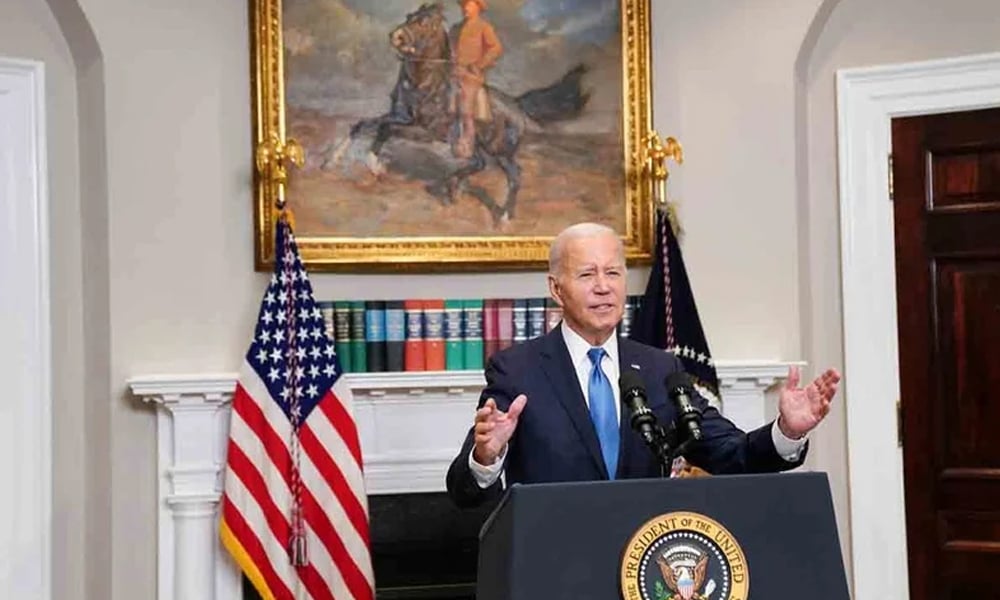Newsmatro

WASHINGTON – President Joe Biden, known for his pro-union stance, has lent robust support to United Autoworkers (UAW) amid their historic strike against the nation’s major automobile manufacturers, marking a significant moment in his presidency. This move signals his commitment to appealing to working-class voters in critical Rust Belt states like Michigan, Pennsylvania, and Wisconsin in the 2024 election.
At the outset, Biden downplayed the likelihood of a UAW strike, stating, “No, I’m not worried about a strike until it happens.” However, when the strike became a reality at Stellantis, Ford, and General Motors plants, Biden shifted his stance dramatically, aligning himself firmly with the UAW’s demands.
President Biden, who aims to be recognized as the “most pro-union president” in U.S. history, has consistently promoted the interests of union members. He believes in granting workers their fair share, emphasizing that corporations with record profits should translate that into substantial contracts for the UAW.
The UAW strike’s intersection with the 2024 election is particularly crucial for Biden. His ability to secure wins in Michigan, Pennsylvania, and Wisconsin hinges on maintaining support from rank-and-file union members who defected from the Democratic Party in recent elections to vote for Donald Trump, a 2024 Republican frontrunner. In the 2020 election, Biden secured the endorsements of UAW and other labor unions but still garnered the support of only about 60% of union members.
Experts suggest that Biden’s unwavering support for the UAW is not only politically strategic but also a reflection of his genuine beliefs. His aggressive promotion of electric vehicles, part of his climate agenda, has, at times, caused tension with labor allies. Electric vehicle manufacturing typically requires fewer workers, but Biden has been clear in his desire to create “good-paying union jobs” during this transition.
The current leadership of the UAW, led by President Shawn Fain, expressed frustration with the Department of Energy’s $9.2 billion grant to Ford and a South Korean battery manufacturer in June, which lacked worker protections. Fain stated that the UAW’s endorsement for the 2024 election must be “earned,” emphasizing that actions, not words, are required.
The UAW strike, which began on September 15, affects nearly 13,000 workers across different plants. Their demands include a 40% pay increase, a four-day workweek, the abolition of a multi-tiered wage system, and the reinstatement of a 1980s-style pension plan.
The Biden campaign is countering critiques from Trump, who will visit Detroit on September 27. Trump argues that Biden’s electric vehicle support endangers autoworkers’ careers. Democrats and their allies highlight Trump’s past policies that were perceived as unfriendly toward unions, including 2017 tax cuts for corporations and skepticism about the 2008 auto industry bailout.
While some Democrats have urged Biden to join striking workers on the picket line, the White House has not indicated whether the president will take this step. In the meantime, the White House is not directly involved in UAW negotiations. Acting Labor Department Secretary Julie Su and White House adviser Gene Sperling are visiting Detroit this week to offer support if requested by the parties.
President Biden’s strong support for the UAW strike aligns with his pre-strike statements, emphasizing the importance of a “win-win agreement” between the parties. His commitment to championing the rights and fair compensation of American workers remains at the forefront of his 2024 election strategy.